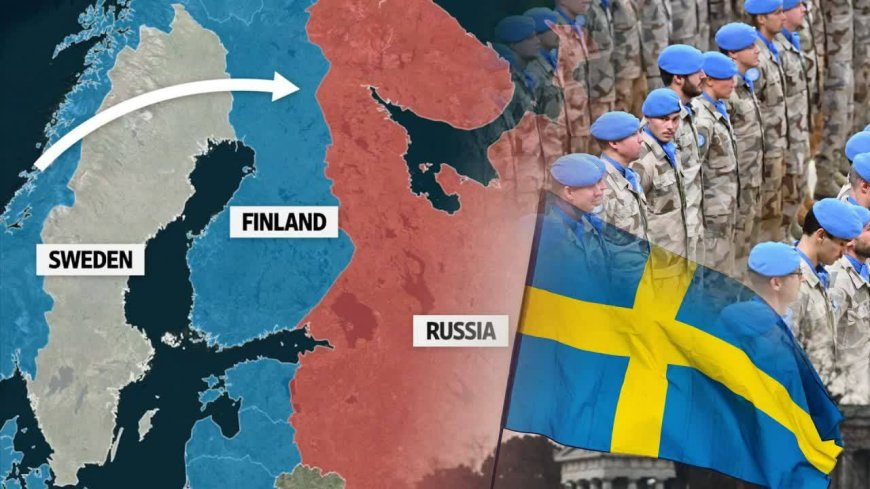Sweden's Admission to NATO: Implications for Russia and the Global Geopolitical Landscape
Sweden's Admission to NATO: Implications for Russia and the Global Geopolitical Landscape

Prior to the Russian special military operation in Ukraine, it was not widely expected that NATO would seek to expand its clout rather than pursue compromise and mediation. However, following the outbreak of war, NATO moved to strengthen its eastern borders and offered membership to non-member countries neighboring Russia. The recent inclusion of Finland and Sweden in this military-security and political agreement has clear implications for Russia, signaling that the West has no intention of backing down. This expansion not only holds operational and military significance but also carries major political, strategic, and defense planning implications.
While Finland and Sweden have informally acted as allies for years, their official accession to NATO brings about practical changes. Strategically, they are now able to seamlessly collaborate with other NATO allies in planning for collective defense. The integration of strategic plans is particularly valuable given Finland's extensive border with Russia and Sweden's possession of vital land areas. The joint accession of Northern European countries to the Alliance creates a cohesive geostrategic region extending from the Arctic to the North Sea and the Baltic Sea.
The Baltic Sea, once a buffer for Sweden against Russian aggression, will now become a regional security ring. In times of crisis or conflict in the Baltics, Swedish air bases can easily receive NATO forces and provide reinforcements. Gotland, an island off the southeast coast of Sweden, becomes especially crucial due to its proximity to Stockholm, Lithuania, and the Russian regions of Kaliningrad and Poland, as well as the three Baltic states. Sweden also serves as a land connection from Germany and Denmark to Norway and Finland via the Øresund Bridge from Copenhagen to Malmö in the south. The port of Gothenburg, located on the Atlantic Ocean, serves as the main entry point for the Nordic region. In the event of disputed or blocked access to the Baltic Sea, Gothenburg offers land routes connecting Oslo, Copenhagen, northern Sweden, and Finland, thereby enhancing interoperability and strategic coordination.
The expansion of NATO to include Sweden also entails an unprecedented level of defense planning cooperation among allies. Finland and Sweden will now undergo bilateral reviews with the NATO International Secretariat and multilateral reviews with all Allies as part of NATO's defense planning process. They will also participate in the strategic decision-making that underpins this process. Their defense investments will be subject to scrutiny, just as they will scrutinize the spending of other allies. Although Finland and Sweden have lagged behind their Nordic neighbors in increasing defense investment since 2014, preliminary analysis suggests that these countries must now align their defense budgets with NATO plans to align with the intended goals of the Alliance's members. The alliance norms and pressure from influential members to implement operational plans and military exercises are high.
Considering these factors, NATO's expansion into Sweden can be viewed as the final step in the organization's strengthening in the East. This aggressive action by the West has imposed increased costs on Russia, the country currently facing the most severe sanctions. While it may provide a relative advantage for Europe in avoiding the threat of invasion or hostilities from Russia in the short term, it also increases the likelihood of hybrid warfare and civil conflict, areas in which Russia has shown proficiency. The heightened pressure on Russia, accompanied by NATO expansion and sanctions, could have significant global consequences that Western politicians should carefully consider. Excessive pressure on Russia may lead to irreversible events, potentially altering all geopolitical and political equations in the modern world.













































